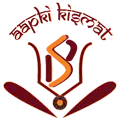Ask Question
Know your Moon sign
Get Instant Report
Panchang




Schools and colleges offer a lot of subjects to choose from, but students often feel puzzled about which subjects should I choose as per the birth chart to have a successful career. It's important to remember that every student has their favourite subjects, and it's challenging to make them excel in something they don't enjoy. Namaskar, I'm Dr. Vinay Bajrangi, and I'll help you understand which subjects you should choose for a successful career ahead.
Know your interests – your favourite subjects.
Some kids might not even know what they're good at, and regular career advice might not be enough. That's where astrological counselling can come in. It can help students figure out what subjects they're meant to study and which subjects will give a successful career to them. So, instead of forcing students into a subject they hate, astrology can guide them towards what they're naturally good at and passionate about.
Vedic astrology can assist students in selecting the right subjects and career paths to ensure success in life. The subject selection, based on astrology, is crucial for pursuing one's dream area of expertise and showcasing their talents. Astrology can play a valuable role in making the right choices at the right time to maximize one's potential and ensure a fulfilling academic and professional journey.
How to choose the right stream of education in astrology?
Choosing the right education stream through astrology involves careful analysis of various astrological factors. The planetary Influences can affect your stream of subjects by giving you likes for specific subjects. Here are a few important steps to consider:
Analyze the Fifth House: Examine the planetary influence on the fifth house and the fifth lord in the birth chart. This will reveal the individual's basic aptitude and inclinations.
Consider Additional Houses: Look at planetary influences on the second, fourth, and ninth houses. These houses determine the level and scope of education one can pursue.
Examine the Tenth House: Identify the planets connected to the tenth house or its lord. This can indicate whether the person has specific skills or talents conducive to professional success.
Explore Karakamsha: Look at the planet in the fifth house from Karakamsha (a significant point in Vedic astrology). This position may provide hints about which stream of education will get me professional success.
Evaluate Planetary Strength: Determine which planet among those influencing the fifth house is the strongest and assess the strength of the fifth lord. A strong planet in this context can signify pronounced aptitude.
Consider Dasha Sequences: Astrological insights for subject selection involve analyzing the sequence of planetary periods (Dashas) to see if any upcoming Dasha periods align with the development of specific talents or interests.
Factor in Signs and Nakshatras: Pay attention to the nature of signs (zodiac signs) and nakshatras (lunar constellations) influencing the fifth house. These also play a role in determining the educational stream that suits an individual.
Assess Overall Horoscope: Before making a final determination, consider the general status of the horoscope, including the strength of the ascendant, Sun, and Moon. An aptitude assessment, as per the birth chart, indicates favourable educational outcomes.
By following these steps and conducting a comprehensive birth chart analysis, astrologers can provide insights into the most suitable education stream, as per kundli, aligning their natural talents and interests with their academic pursuits.
Different planets indicate different subjects.
Astrological advice for stream selection suggests that the positions of planets at the time of a person's birth can provide insights into their personality, strengths, and inclinations, including their potential aptitude for certain subjects or fields of study. Each planet is associated with specific types of subjects or areas of interest.
Sun: The Sun is associated with mathematics, philosophy, medicine, healing, astronomy, and history. People with a strong Sun influence in their birth chart may have a natural aptitude for these fields.
Moon: The Moon is linked to creative and emotional subjects such as creative arts, psychology, psychiatry, herbs, chemistry, biology, hospitality, and fisheries. Those influenced by the Moon may excel in these areas.
Mars: Mars is connected to subjects that require action, logic, and precision, such as engineering, construction, sports, and logic-oriented courses. People with a strong Mars influence may thrive in these fields.
Mercury: Mercury governs communication and intellectual pursuits. It's associated with subjects like journalism, acting, theatre, radio, account keeping, library studies, company secretaryship, astrology, trade, and other fields that involve effective communication and analytical thinking.
Jupiter: Jupiter would influence education in philosophy, religion, law, ethics, politics, economics, higher studies, teaching, and languages.
Venus: Venus would be linked to fine arts, fashion designing, interior decoration, modelling, cinema, beauty, music, luxury items, and all creative fields.
Saturn: Saturn, however, would be associated with disciplines like history, mining, geology, archaeology, aeronautics, pathology, labour, and disciplines requiring patience and discipline.
Rahu: Rahu would have a role in studying new-age technologies, aviation, metaphysics, innovation, computers, and unconventional fields.
Ketu: Ketu would govern research-oriented subjects, spirituality, paranormal studies, and areas that involve exploring the unknown.
In astrology, the placement and strength of these planets in an individual's birth chart can provide insights into their natural aptitude and inclinations towards specific subjects. By analyzing these astrological factors, one can better understand which academic fields may align with their talents and interests, helping them make informed decisions about subject selection and educational pursuits.
.jpg)




